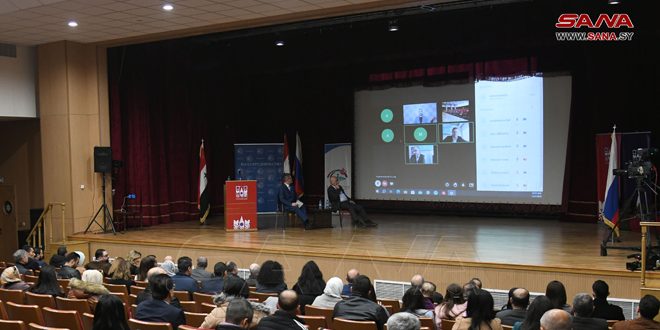Participants in the first Syrian-Russian Media conference, held at the Russian Cultural Center in Damascus, has called for turning the media cooperation between the two countries into a strategic partnership, expressing hope that bilateral cooperation between Syria and Russia will establish a broader international and regional cooperation in the face of the western hegemony on media.
The participants also called for forming a joint group that puts a comprehensive method for media cooperation that includes objectives, cadres, tools and media production.
They recommended that the conference be a starting point for cooperation between the two sides in all media aspects, and in the field of artificial intelligence, which contributes to enabling the journalists of the two countries to keep pace with emerging global technical developments, and leads to enhancing bilateral cooperation with regard to news sources, media content, and program exchange.
The conference included dialogue sessions that discussed the relationship between the Syrian and Russian media, how the Russian media deals with the Arab situation and media diplomacy.
The participants also focused on ways to confront the challenges facing coverage of thorny events by relying on reliable sources away from misleading data, forming an integrated media system based on research centers and analytical and methodological data, providing the required support to journalists, and improving media content in accordance with national standards to confront the neo-liberalism created by the West and its media institutions to penetrate societies.
Director of the Diplomatic Institute at the Ministry of Foreign Affairs and Expatriates Imad Mustafa reviewed the challenges facing the work of diplomatic missions abroad, the skills they must possess, and how to convey the full image about of the situation of their country and defend its issues. He noted the importance of the media in covering all aspects of foreign relations, international events, and in monitoring the behavior and performance of diplomats and in active diplomatic contacts with various centers of power and decision-making and all organizations influencing public opinion. He also affirmed the need to provide training to diplomatic missions on media performance and interaction with various media outlets.
He noted the contribution of the Syrian missions in explaining the full image about politics, the positions that Syria has adopted, and the devastating terrorist war the country has been exposed to.
Hamda Mustafa

